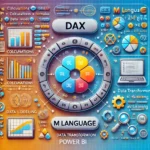Arch Linux vs. Debian: Choosing the Right Linux Distribution
Choosing a Linux distribution can be a daunting task, especially with the multitude of options available. Two popular choices among Linux enthusiasts are Arch Linux and Debian. Each has its own strengths and characteristics that cater to different user preferences and needs. In this blog post, we’ll delve into a detailed comparison of Arch Linux and Debian, helping you make an informed decision about which one is right for you.
Overview of Arch Linux
Arch Linux is known for its simplicity, minimalism, and “do-it-yourself” philosophy. It is a rolling release distribution, which means that you get the latest updates and software without having to reinstall the entire operating system. Arch employs the Pacman package manager, which allows users to easily install, update, and remove software packages. Arch Linux provides a highly customizable experience, allowing users to build their system from the ground up according to their preferences.
Overview of Debian
Debian, on the other hand, is one of the oldest and most respected Linux distributions. It prides itself on stability and reliability. Debian uses the APT package manager and is available in three main branches: Stable, Testing, and Unstable. Stable is well-suited for production servers and systems where stability is paramount, while Testing and Unstable offer more up-to-date software but with potentially greater instability. Debian is often chosen for its strict adherence to free software principles and its vast software repository, which boasts an impressive number of packages.
https://synapsefabric.com/2023/09/02/arch-linux-vs-ubuntu-choosing-the-right-linux-distribution/
Comparison Table: Arch Linux vs. Debian
Let’s compare Arch Linux and Debian across various aspects to help you make an informed decision:
| Aspect | Arch Linux | Debian |
|---|---|---|
| Installation | Complex and hands-on; requires a good understanding of Linux | Straightforward and user-friendly; offers various installation options |
| Package Management | Pacman package manager | APT package manager |
| Software Availability | Extensive but may require additional repositories for certain software | Vast software repository with a wide range of packages |
| Release Model | Rolling release | Stable, Testing, and Unstable branches |
| Customization | Highly customizable, build your system from scratch | Less customizable out of the box; greater emphasis on stability |
| Community Support | Active and helpful community; extensive documentation | Strong community support; comprehensive documentation |
| Ease of Use | Steeper learning curve; suited for experienced users | Beginner-friendly; good for newcomers to Linux |
| System Stability | Potentially less stable due to rolling release model | Exceptional stability in the Stable branch; less stable in Testing and Unstable |
| Security | Up-to-date security patches; users have greater control | Solid security practices; prompt security updates |
| Desktop Environments | No default desktop environment; choose your own | Offers various desktop environments, including GNOME and KDE |
| Resource Usage | Lightweight and efficient; minimal system footprint | Slightly heavier resource usage compared to Arch |
Which One Should You Choose?
The choice between Arch Linux and Debian ultimately depends on your preferences and requirements. Here are some guidelines to help you decide:
- Choose Arch Linux If:
- You enjoy a hands-on approach and want to build a customized system.
- You prefer the latest software updates and don’t mind potential instability.
- You have experience with Linux and are comfortable with command-line tools.
- You want a minimalistic and lightweight system.
- Choose Debian If:
- Stability is of utmost importance for your system.
- You’re new to Linux and prefer a user-friendly installation process.
- You need a wide selection of pre-built software packages.
- You want to use Linux on servers or production environments.
Both Arch Linux and Debian have their own strengths and cater to different user profiles. Whichever distribution you choose, remember that the Linux community is vast and supportive, so you’ll have resources and assistance at your disposal as you explore and customize your Linux experience.
In conclusion, Arch Linux and Debian represent two distinct approaches to Linux, one emphasizing customization and the latest software, and the other focusing on stability and reliability. Understanding your priorities and skill level is crucial in making the right choice for your Linux journey. Happy Linux-ing!






